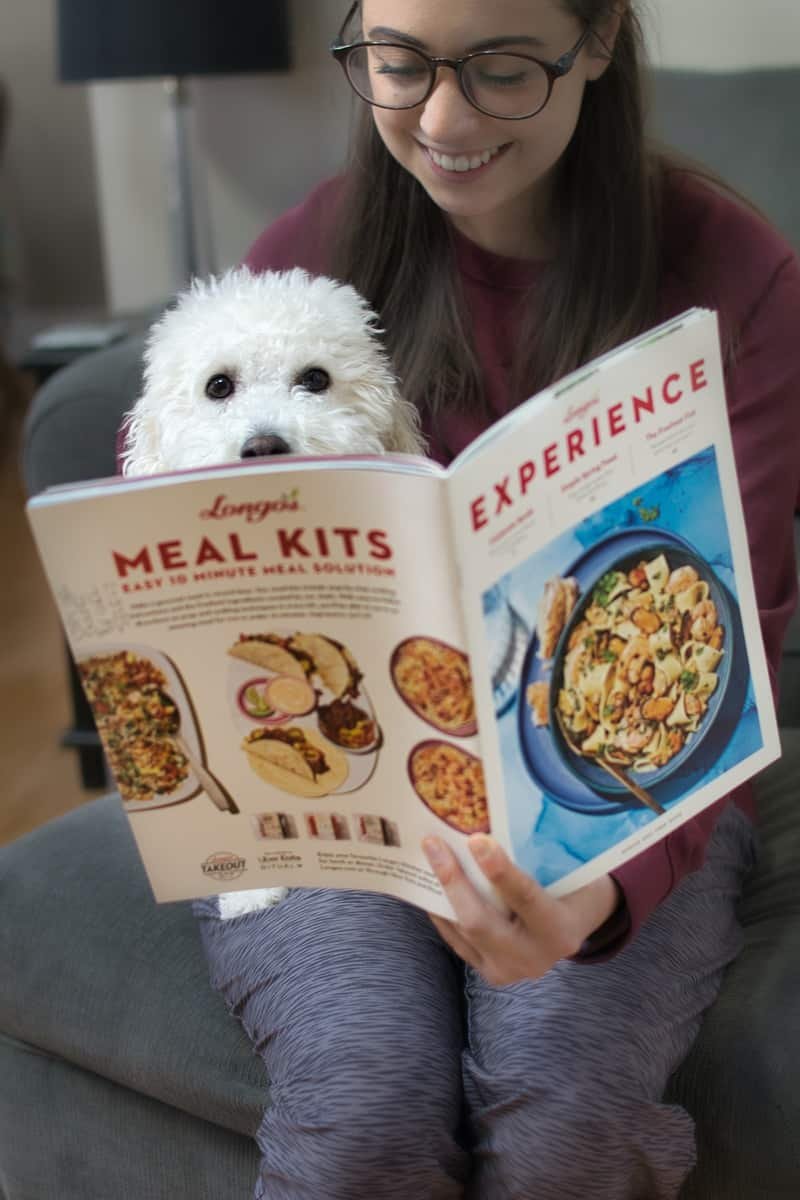
For Poodle owners out there, your most likely aware of the importance of your dog’s diet. Your Poodle needs a balanced diet to help with its activity level, prevent health issues, and allow it to live a healthy life overall.
However, you might be surprised that, even if you think you’re feeding your dog a proper diet, you’re overfeeding it or not giving the appropriate pet foods.
To keep your Poodle at a healthy weight and free from digestive issues, here are the signs that show your Poodle may need a diet.
From Our Experience: As poodle enthusiasts who have worked with hundreds of poodle owners and rescue organizations over the years, we’ve gathered real-world insights that go beyond textbook knowledge. The information in this article reflects both professional expertise and hands-on experience with poodles of all sizes and temperaments.
Your Poodle is Overweight or Underweight
The number one sign its time to put your Poodle on a diet is if he’s packing on the pounds.
While a chubby, fluffy poodle looks adorable, it won’t do well for their overall health. Overweight Poodles are more likely to have a lower quality of life because of their higher risk of medical issues, skin conditions, and diseases.
Not only that, but overweight Poodles are less likely to move around and will have a hard time doing so. That also results in a poor quality of life. Like humans, dogs need to have a proper diet and exercise to feel confident and live healthily.
Here are the signs that show your Poodle is overweight and needs a diet focused on weight loss:
If you can’t feel your Poodle’s ribs, he may be overweight.
Check the base of your Poodle’s tail for any fat rings that prevent you from feeling any bone.
Inspect your dog’s shape when standing over them.
If your Poodle has difficulty breathing while walking.
The Poodle’s abdominal tuck is smaller than its chest, or you can’t see his waist.
Learn about the healthy weight range of your Poodle based on its gender, size, age, and activity level. For instance, an adult male Standard Poodle should weigh 60-70 pounds while females must weigh between 40-50 pounds.
If your Poodle goes over the healthy weight range, then it’s time to put him on a diet transition to shed the pounds.
Keep track of your Poodle’s weight and paying attention if he’s gaining or losing too much. If you notice a huge weight change, you need to change your Poodle’s diet to either gain or lose enough weight to go back to a healthier range.
Yes, an underweight Poodle is also an enormous sign he needs a diet change. Malnourished dogs are at risk of health conditions just as overweight dogs.
You will know if your Poodle is underweight if you see and feel his bones, ribs, and vertebra. You’ll also feel the hips protruding with no signs of muscles.
Your Poodle is More Prone to Bladder Stones
When the minerals from your dog’s urine become concentrated and crystallized, they may form stones in the bladder or the urinary tract.
If your Poodle is prone to bladder stones, the vet may recommend a therapeutic diet. Such diets will help change your Poodle’s urine acidity, restricting specific nutrients for fewer building blocks that form bladder stones.
The vet may recommend a diet to remove a specific type of stones, though another treatment plan may be needed, from medication to surgery.
Your Poodle is Diagnosed with Kidney Disease
Chronic kidney disease is irreversible, and unfortunately, it may result in death. If your dog has this condition, you must modify what he eats.
While diets won’t cure kidney disease, they will slow the organ’s deterioration. That way, your Poodle can live a longer life than those on a commercial diet.
Therapeutic renal diets are usually low in phosphorous and have moderate protein levels. Furthermore, these diets contain fatty acids and antioxidants, which help modulate inflammation and reduce cell damage.
Food Allergies
Poodles with food allergies are extremely sensitive to proteins found in a commercial diet. Here are the symptoms of food allergies or adverse food reactions in dogs:
Excessive itchiness
Recurrent ear and skin infections
Symptoms of gastrointestinal disease such as weight loss, diarrhea, and vomiting
There are hypoallergenic diets available, containing proteins broken down into smaller pieces. That way, these proteins won’t stimulate the immune system, causing allergic reactions.
Do NOT use over-the-counter pet foods or diets to treat allergies. Commercial diets aren’t reliable and might have other protein sources.
Always ask your vet for food recommendations to prevent adverse food reactions.
You can also give your dog a prescription diet if he has atopic dermatitis or environmental allergies. These diets usually help improve skin health with added antioxidants and omega-3 fatty acids.
However, if your Poodle is allergic to something in his food, he might have food sensitivities. Because of that, it’s best to avoid commercial dog foods and opt for homemade diets.
If you’re already feeding your dog a homemade diet but still notice he suffers from food sensitivities, you can try a vet-guided elimination diet trial. That way, you can learn about what your dog is allergic to and prevent allergies from happening again.
Your Poodle Has Heart Disease
If your vet diagnosed your Poodle with heart diseases, she might recommend therapeutic diets. However, these diets aren’t something vets recommend often.
While some diets help improve cardiac health, they don’t play a significant role compared to diets for humans with heart disease. Your Poodle’s cardiologist can determine what your dog will best benefit from when it comes to food.
Just like diets for kidney disease, heart-healthy diets won’t cure your dog but can slow down the disease’s progression. Most diets for heart disease have lower levels of sodium while higher levels of carnitine and taurine.
Your Poodle Has Gastrointestinal Issues
Is your dog suffering from the common signs of gastrointestinal issues like diarrhea and vomiting? The vet will probably put your Poodle under a prescription diet once he determines the cause.
Some Poodles with gastrointestinal issues can benefit from hydrolyzed protein or novel protein diets. Others can benefit from a low-residue or high-fiber diet.
There are many causes for diarrhea and chronic dieting, so you must discuss these issues with the vet to determine the best meal plan.
Your Dog Has Dementia or Seizures
If your Poodle has idiopathic epilepsy or dementia, your vet may prescribe diets planned for neurological health.
Diets won’t completely manage neurological conditions alone, but they can help decrease the frequency of seizures when paired with the vet-prescribed medications.
The proper diet can slow the disease’s progression and lessen the severity of symptoms.
How to Tell You Need to Change Your Poodle’s Diet
So, how can you tell if your dog is overweight or suffers from health conditions that require a diet change? Here are more tips to follow:
Behavioral Changes
Does your Poodle appear lethargic or tired? If your dog seems more worn out or less excited than usual, then it may come from a medical condition.
You must check for other signs of sicknesses, like:
Nausea
Excessive drooling, chewing or licking
Vomiting
Your Poodle urinates too much or not enough
Diarrhea
Strong-smelling feces
Loss of appetite
Weight loss
You have an older poodle moving slower
Physical Appearance
You must also check your dog’s physical appearance and watch out for any visible signs it’s time for a diet change.
Follow these tips:
Check your dog’s coat and see if it’s any duller than usual. If your dog’s coat isn’t as bright or vibrant, then your dog isn’t getting enough nutrients to maintain a shiny coat.
Check your Poodle’s skin. If it flakes and doesn’t look healthy, it’s time for a diet change.
Brush your dog’s coat to see if it is dry or brittle.
Inspect your dog’s abdominal area. If you notice your Poodle has an enlarged abdominal area or rounded middle, it can be a sign of obesity. It may also signify other medical issues like Cushing’s disease, torsion, or cancer.
Look out for signs of skin irritation or rashes. Check your dog’s skin to find any irritated patches or signs of rashes. It can come from an allergy to their diet.
Ask the Veterinarian
We continuously mentioned seeing a veterinarian about your dog’s condition and discussing diets, and it’s best to have a separate section for it.
If you notice any adverse reactions or changes in your Poodle’s appearance or demeanor (as mentioned), then take him to the vet immediately. The veterinarian will do a routine check-up and run any diagnostic tests as needed. That way, he can determine what’s causing your Poodle’s changes and symptoms.
Depending on your Poodle’s condition and diagnosis, your vet will prescribe specific treatments and diets that help improve your pet’s health.
Make sure you discuss all diet-related details with your vet, asking what food is most suited for your Poodle and how much of it he needs. The vet will talk about what nutrients your dog needs and what particular food you must avoid feeding.
Once you have the appropriate diet plan for your Poodle, begin following it. However, do so gradually. You wouldn’t want to do it too quickly, as it can cause digestive issues.
Please continue to monitor your Poodle’s diet and his general demeanor on the new diet. As long as you follow the diet, then your Poodle will most likely return to its usual self.
If your dog isn’t improving even after a few weeks or months, take him to the vet again and discuss what adjustments you should make to your dog’s treatment and diet plan.


